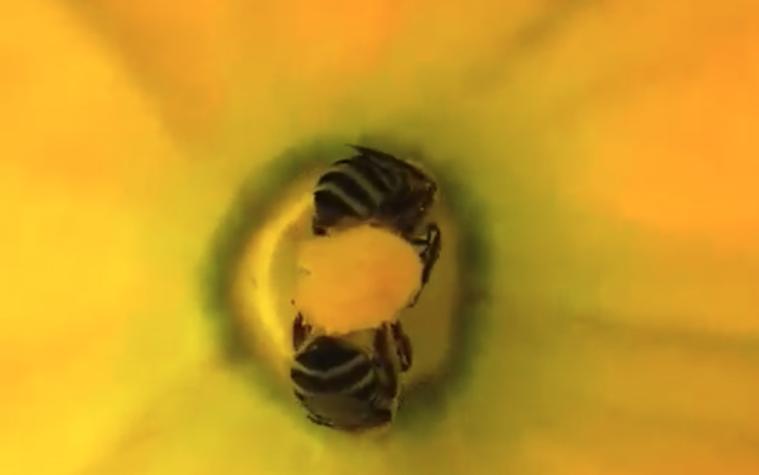INDEPENDENCE, Mo. – When giving thanks this Thanksgiving, give a special nod to pollinators that make much of your feast possible, says University of Missouri Extension field horticulturist Tamra Reall.
Make that three nods of gratitude, Reall says.
The USDA Natural Resources Conservation Service says a third of the American diet relies on pollinators, especially bees, so that’s a lot of nodding, saluting and bowing to the little buzzers.
Pumpkins and squash rely heavily on squash bees that follow the daily rhythms of squash flowers. “Being bees, they’re workers,” says Reall. “They get up early in the morning when flowers open and take short, well-deserved naps inside the closed squash blooms in the afternoon.” Before honey bees arrived from Europe, squash bees were the primary pollinators.
Cranberries also get a boost from buzzing bees. Cranberries use buzz pollination, a method in which bees shake flowers with the vibration of their buzz to release pollen critical for cranberry production.
Then there’s the secondary buzz-by. Dairy products such as butter, cream and milk that account for the richness of many holiday desserts and mashed potatoes begin with pollinated alfalfa, clover and grasses eaten by cows.
Apples and legumes like green beans also benefit from the hard work of pollinators. And that pecan pie? It relies on pollination necessary for nut production.
And finally, turkey would not be as plump without corn and soybean used in feed for the Thanksgiving Day main attraction, says Reall.
Protecting these vital pollinators is crucial, she says. In the most recent beekeeping season, U.S. beekeepers experienced a loss of approximately 55% of their managed honey bee colonies, the highest annual rate on record. But it’s not just honey bees that need our help. Native bees, including squash bees, bumble bees and thousands of other species, also face challenges from habitat loss and pesticide exposure.
Reall says you can help protect the health of bees and other pollinators to benefit future Thanksgiving dinners by planting a pollinator garden and reducing pesticide use.
MU Extension offers numerous educational programs on how to improve the environment for pollinators, including Master Pollinator Steward, Extension Garden Steward, Extension Master Gardener and Missouri Master Naturalist.
Related
Photo and video of squash bees pollinating. Courtesy of Tamra Reall.
